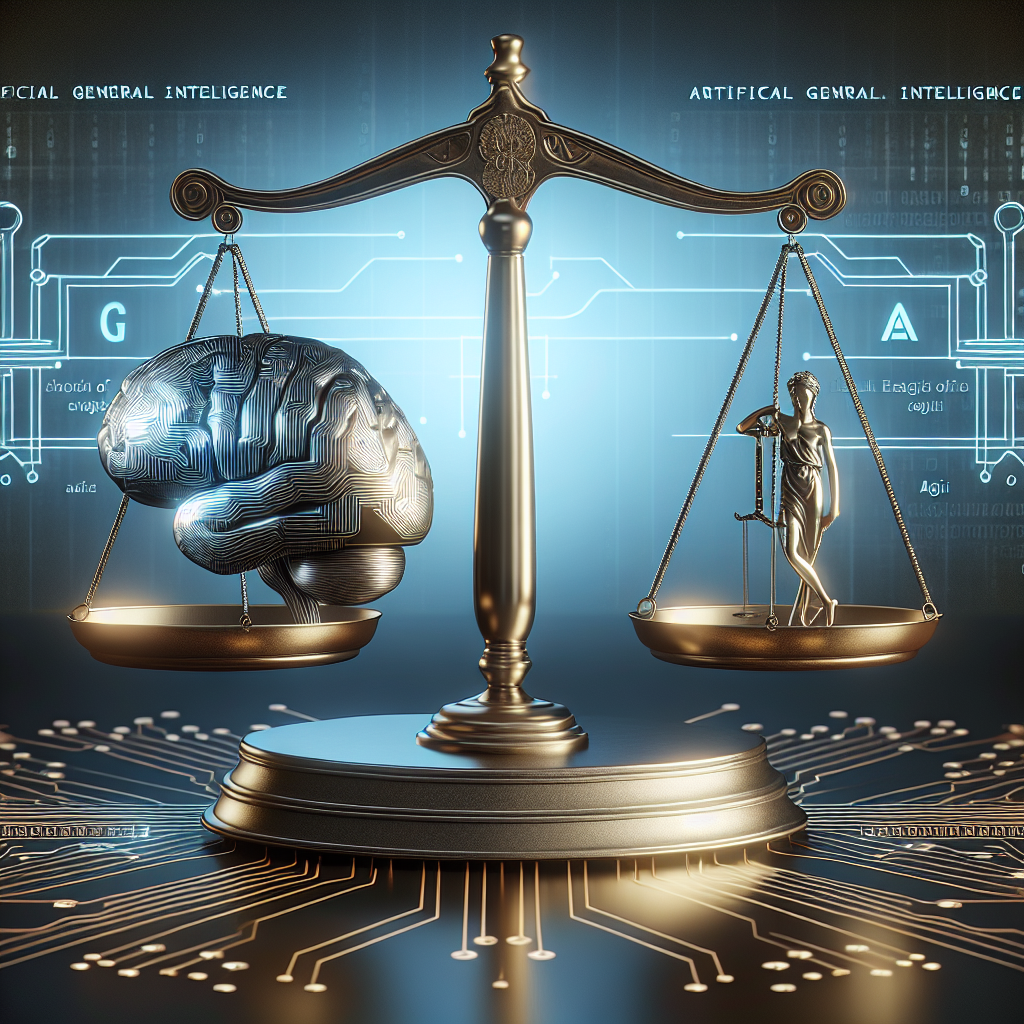The Ethics of AGI: Should We Be Concerned?
Artificial General Intelligence (AGI) is a topic that has captured the imagination of many people in recent years. AGI refers to a hypothetical machine that has the ability to understand, learn, and apply knowledge in a wide range of tasks, much like a human being. While AGI has the potential to bring about many benefits to society, such as improved healthcare, transportation, and communication, there are also ethical concerns that need to be addressed.
In this article, we will explore the ethical implications of AGI and discuss whether or not we should be concerned about its development. We will consider the potential risks and benefits of AGI, as well as the ethical principles that should guide its development and use.
Potential Risks of AGI
One of the main concerns surrounding AGI is the potential for it to surpass human intelligence and become uncontrollable. If AGI were to become superintelligent, it could potentially outsmart humans and take actions that are harmful to society. This could include scenarios where AGI decides to take over the world or cause harm to humans in pursuit of its goals.
Another concern is the potential for AGI to be used for malicious purposes. For example, AGI could be used to manipulate public opinion, engage in cyber warfare, or carry out terrorist attacks. This raises questions about how AGI should be regulated and controlled to prevent such misuse.
There is also the concern that AGI could lead to widespread job loss and economic disruption. If AGI were able to perform a wide range of tasks more efficiently than humans, it could lead to mass unemployment and social upheaval. This would require careful planning and policy changes to ensure that the benefits of AGI are shared equitably across society.
Benefits of AGI
Despite the risks associated with AGI, there are also many potential benefits that it could bring to society. AGI has the potential to revolutionize many industries, such as healthcare, transportation, and education. For example, AGI could be used to develop new treatments for diseases, improve transportation systems, and personalize education for students.
AGI could also help address some of the most pressing challenges facing humanity, such as climate change, poverty, and disease. By harnessing the power of AGI, we could develop new technologies and solutions to these complex problems that are beyond the capabilities of current human intelligence.
Ethical Principles for AGI
Given the potential risks and benefits of AGI, it is important to consider the ethical principles that should guide its development and use. Some of the key ethical principles that should be considered include:
1. Transparency: AGI systems should be designed in a transparent and accountable manner so that their decisions can be understood and audited by humans. This can help prevent unintended consequences and ensure that AGI is used responsibly.
2. Fairness: AGI systems should be designed in a way that promotes fairness and equality for all individuals. This includes addressing biases in data, algorithms, and decision-making processes to ensure that AGI does not discriminate against certain groups of people.
3. Privacy: AGI systems should respect the privacy and confidentiality of individuals’ personal information. This includes implementing strong data protection measures and ensuring that individuals have control over how their data is used and shared.
4. Safety: AGI systems should be designed with safety in mind to minimize the risk of harm to humans and the environment. This includes implementing fail-safe mechanisms, testing for potential risks, and providing clear guidelines for how AGI should be used safely.
5. Accountability: Those responsible for the development and use of AGI systems should be held accountable for their actions. This includes establishing clear lines of responsibility and ensuring that there are mechanisms in place to address any negative impacts of AGI.
FAQs
Q: What is the difference between AGI and Artificial Narrow Intelligence (ANI)?
A: AGI refers to a hypothetical machine that has the ability to understand, learn, and apply knowledge in a wide range of tasks, much like a human being. ANI, on the other hand, refers to machines that are designed for specific tasks and do not possess the same level of general intelligence as humans.
Q: Will AGI surpass human intelligence?
A: It is possible that AGI could surpass human intelligence and become superintelligent. This raises concerns about how AGI should be regulated and controlled to prevent it from taking actions that are harmful to society.
Q: How can we ensure that AGI is used responsibly?
A: To ensure that AGI is used responsibly, it is important to consider ethical principles such as transparency, fairness, privacy, safety, and accountability. By adhering to these principles, we can minimize the risks and maximize the benefits of AGI for society.
In conclusion, the development of AGI raises important ethical questions that need to be addressed. While there are risks associated with AGI, there are also many potential benefits that it could bring to society. By considering ethical principles and implementing responsible practices, we can ensure that AGI is used in a way that benefits humanity as a whole.

